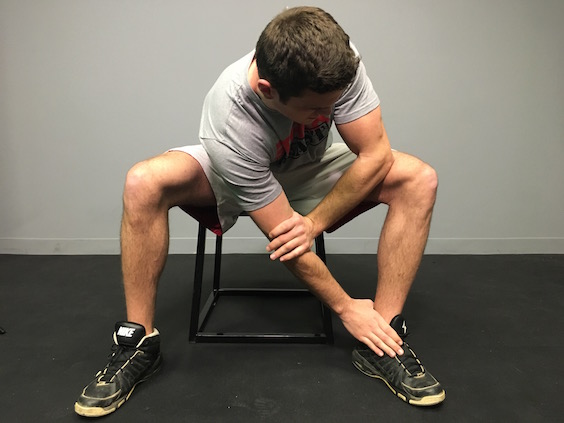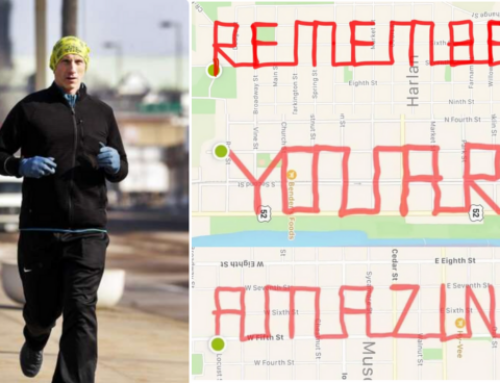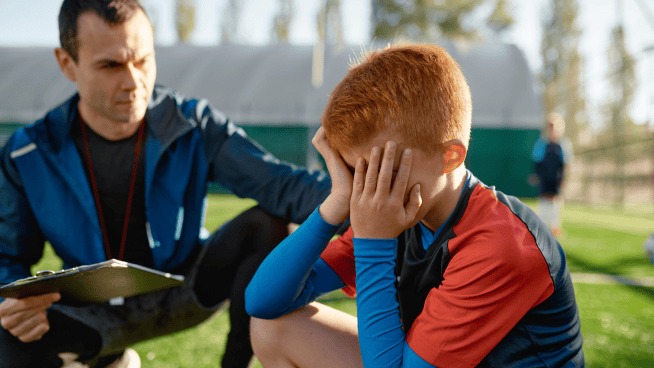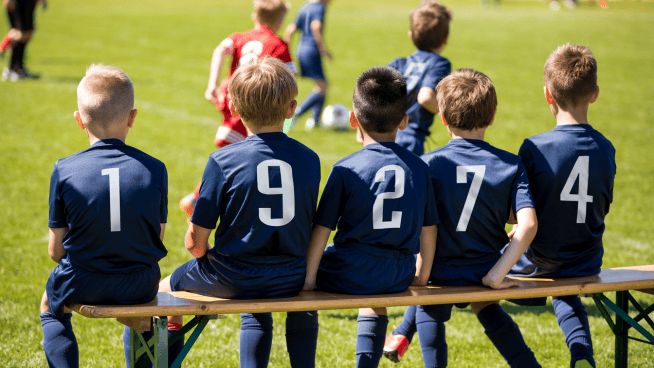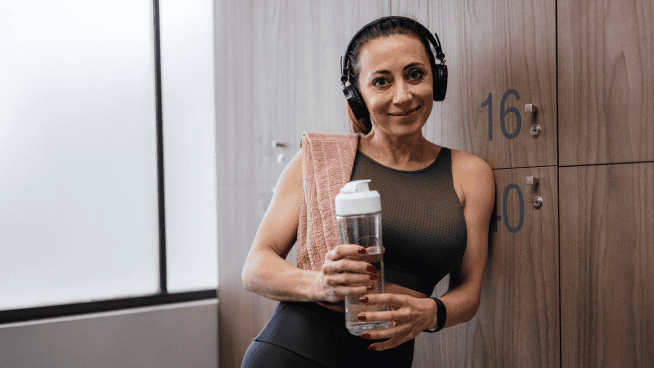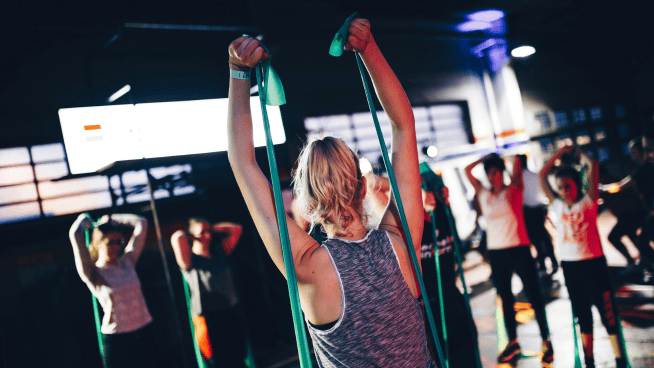Hoping for Big Training Gains This Summer? Take Your Sleep Seriously
Summer is here.
For many young athletes, that means the abolishment of a consistent bedtime.
With school suddenly a non-factor in their routine, many teens fall into the habit of simply falling asleep whenever it strikes them. Some nights, it could be 2 a.m. Other nights, it could be 5 a.m.
While there’s nothing wrong with staying up a little later or sleeping in a bit longer during summer, a totally chaotic sleep schedule isn’t without consequence—particularly for athletes.
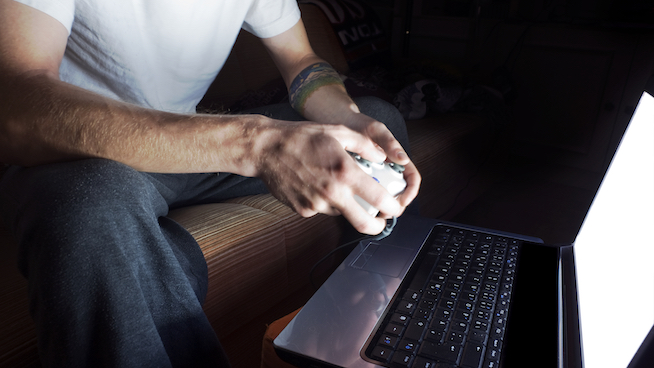
I’m not saying teens should be asleep by 10 p.m. every summer night. Not only is that unrealistic, but it’s flat-out unnatural. “Biological sleep patterns shift toward later times for both sleeping and waking during adolescence—meaning it is natural to not be able to fall asleep before 11 p.m.,” the National Sleep Foundation writes. According to a 2012 Wall Street Journal article, this shift to a later natural sleep time for adolescents continues until it peaks at age 19.5 in girls and 20.9 in boys. Only then do their biological clocks began to rebound back toward the earlier bed times which come natural for older adults. But with no rhyme or reason to many teen’s summer sleep habits, both sleep duration and sleep quality suffer.
Let’s first talk about what happens when you don’t get enough sleep—a common side effect of staying up into the wee hours of the morning.
“Not meeting your sleep requirement has serious deleterious consequences. It significantly increases your risk of heart disease, stroke, diabetes, obesity, cancer—you name it,” renowned sleep expert Dr. James Maas told STACK. “Sleep deprivation lowers your immunity and puts your health at risk. Emotionally, sleep deprivation increases your risk of clinical depression and makes you more irritable and anxious. Your motor coordination and reaction time suffer. Cognitively, there’s a huge detriment. Concentration, critical thinking, creative thinking—it all suffers when you don’t meet your sleep requirement. Sleep quality and quantity is also the best prediction of how long we’re going to live. In short, sleep deprivation makes you clumsy and ignorant, and shortens your life.”
For athletes, not getting enough sleep is particularly harmful. A 2011 study in the journal SLEEP found that Stanford basketball players were able to dramatically improve their on-court performance simply by increasing their total amount of sleep time. After increasing their sleep to 10 hours per night for five to seven weeks, players saw big improvements in sprint performance and shooting accuracy. Reported fatigue also decreased. “If you told an athlete you had a treatment that would reduce the chemicals associated with stress, that would naturally increase human growth hormone, that enhances recovery rates, that improves performance, they would all do it,” Dallas Mavericks trainer Casey Smith told ESPN on the power of adequate sleep.
Sufficient sleep also greatly reduces injury risk in young athletes. An abstract presented at the 2012 American Academy of Pediatrics National Conference found that adolescent athletes who slept eight or more hours each night were 68% less likely to be injured than athletes who regularly slept less.
According to the National Sleep Foundation, teens (classified as anyone between the ages of 14 and 17) need 8 to 10 hours of sleep each night to function their best. For young adults (anyone between the ages of 18 and 25), that number is 7 to 9 hours of sleep. For school age children (between the ages of 6 and 13), the number is 9 to 11 hours of sleep.
When compared to the general population, athletes may benefit from even more sleep. In the aforementioned Stanford basketball study, the players (who qualified as young adults) saw a big improvement in their performance by extending their sleep to 10 hours per night for five to seven weeks. That’s an hour more than the 7-9 hours a night the NSF recommends for young adults.
If you’re falling asleep at 3 or 4 a.m. most summer nights, are you really giving yourself a good shot of reaching that 10 hours? That would mean sleeping in until 1 or 2 p.m. And even if you are able to sleep in that late, the simple act of having an inconsistent bed time can be enough to throw off your body’s internal clock.
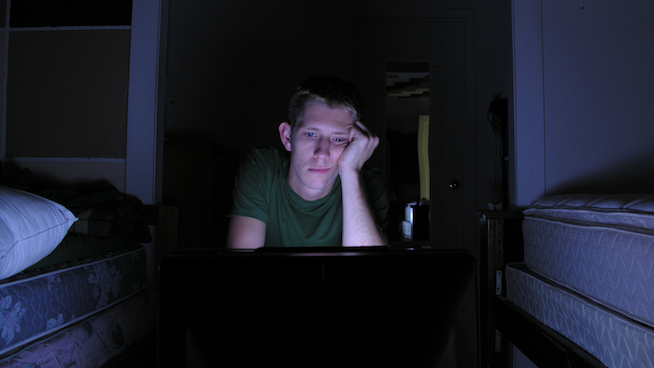
Even if you’re totaling roughly the same number of hours of sleep each night, when you go to bed remains a critical factor. A recent study published in the journal Scientific Reports looked at the relation between irregular sleep schedules and academic performance in university students. Despite the fact there was no significant difference in the average daily sleep duration between participants with irregular bedtimes and participants with regular bedtimes, irregular bedtimes were associated with lower grade point averages.
“These results collectively demonstrate a robust positive relationship between sleep regularity and academic grades,” the study’s authors conclude.
Studies have also found a relation between irregular bedtimes and behavioral problems in children, adverse metabolic health, and a lack of creative thinking. A recent analysis of Fitbit users also found that keeping a consistent bedtime significantly boosts sleep quality. Higher quality sleep translates to better recovery, better immune function, reduced inflammation and superior muscle strength.
It’s believed that disrupting our circadian rhythms can have a negative effect on our gut bacteria, which in turn can have far-reaching health effects all throughout the body. While it’s also important to establish a consistent wake-up time, that should come fairly naturally once you manage to nail down a consistent bedtime.
And by the time most teens (boys, in particular) do finally fall asleep, they do so after being bathed in blue light for hours on end.
Our body relies largely on natural light to keep our circadian rhythms synchronized, but it has trouble discerning between artificial light and sunlight. Nowadays, much of the artificial light doing this harm can be categorized as “blue light.” Part of the visible light spectrum and defined as having a wavelength between 450-495nm, blue light is emitted from many digital devices such as computers, smartphones and televisions. A recent study published in the journal Ophthalmic & Physiological Optics looked at just how damaging this blue light can be. From ScienceDaily:
Study participants, ages 17-42, wore short wavelength-blocking glasses three hours before bedtime for two weeks, while still performing their nightly digital routine. Results showed about a 58 percent increase in their nighttime melatonin levels, the chemical that signals your body that it’s time to sleep. Those levels are even higher than increases from over-the-counter melatonin supplements.
Participants also reported falling asleep faster, sleeping better and sleeping longer.
While there’s still more research to be done on the harmful effects of blue light on sleep and circadian rhythms, the existing evidence paints a grim picture. “Sleep suffers. Worse, research shows that it may contribute to the causation of cancer, diabetes, heart disease and obesity,” writes the Harvard Health Letter.
So not only is exposure to blue light at night making you groggier in the short term, but it could also be slowly killing you. To combat this issue, you can start by avoiding bright screens during the two hour lead-up to sleep. If you really can’t give up your iPhone before bed, we recommend using “Night Shift” mode. There are also affordable blue light-blocking glasses available for purchase, similar to what was used in the aforementioned study.
This summer, many young athletes will fall into the habit of staying up until all hours of the night while planted in front of a blue light-emitting device. That blue light will suppress their melatonin, making them stay up even later. If you really want to see results from your summer training, keeping a chaotic sleep schedule will seriously undercut your efforts.
Photo Credit: DaveLongMedia/iStock, joshblake/iStock
READ MORE:
RECOMMENDED FOR YOU
MOST POPULAR
Hoping for Big Training Gains This Summer? Take Your Sleep Seriously
Summer is here.
For many young athletes, that means the abolishment of a consistent bedtime.
With school suddenly a non-factor in their routine, many teens fall into the habit of simply falling asleep whenever it strikes them. Some nights, it could be 2 a.m. Other nights, it could be 5 a.m.
While there’s nothing wrong with staying up a little later or sleeping in a bit longer during summer, a totally chaotic sleep schedule isn’t without consequence—particularly for athletes.

I’m not saying teens should be asleep by 10 p.m. every summer night. Not only is that unrealistic, but it’s flat-out unnatural. “Biological sleep patterns shift toward later times for both sleeping and waking during adolescence—meaning it is natural to not be able to fall asleep before 11 p.m.,” the National Sleep Foundation writes. According to a 2012 Wall Street Journal article, this shift to a later natural sleep time for adolescents continues until it peaks at age 19.5 in girls and 20.9 in boys. Only then do their biological clocks began to rebound back toward the earlier bed times which come natural for older adults. But with no rhyme or reason to many teen’s summer sleep habits, both sleep duration and sleep quality suffer.
Let’s first talk about what happens when you don’t get enough sleep—a common side effect of staying up into the wee hours of the morning.
“Not meeting your sleep requirement has serious deleterious consequences. It significantly increases your risk of heart disease, stroke, diabetes, obesity, cancer—you name it,” renowned sleep expert Dr. James Maas told STACK. “Sleep deprivation lowers your immunity and puts your health at risk. Emotionally, sleep deprivation increases your risk of clinical depression and makes you more irritable and anxious. Your motor coordination and reaction time suffer. Cognitively, there’s a huge detriment. Concentration, critical thinking, creative thinking—it all suffers when you don’t meet your sleep requirement. Sleep quality and quantity is also the best prediction of how long we’re going to live. In short, sleep deprivation makes you clumsy and ignorant, and shortens your life.”
For athletes, not getting enough sleep is particularly harmful. A 2011 study in the journal SLEEP found that Stanford basketball players were able to dramatically improve their on-court performance simply by increasing their total amount of sleep time. After increasing their sleep to 10 hours per night for five to seven weeks, players saw big improvements in sprint performance and shooting accuracy. Reported fatigue also decreased. “If you told an athlete you had a treatment that would reduce the chemicals associated with stress, that would naturally increase human growth hormone, that enhances recovery rates, that improves performance, they would all do it,” Dallas Mavericks trainer Casey Smith told ESPN on the power of adequate sleep.
Sufficient sleep also greatly reduces injury risk in young athletes. An abstract presented at the 2012 American Academy of Pediatrics National Conference found that adolescent athletes who slept eight or more hours each night were 68% less likely to be injured than athletes who regularly slept less.
According to the National Sleep Foundation, teens (classified as anyone between the ages of 14 and 17) need 8 to 10 hours of sleep each night to function their best. For young adults (anyone between the ages of 18 and 25), that number is 7 to 9 hours of sleep. For school age children (between the ages of 6 and 13), the number is 9 to 11 hours of sleep.
When compared to the general population, athletes may benefit from even more sleep. In the aforementioned Stanford basketball study, the players (who qualified as young adults) saw a big improvement in their performance by extending their sleep to 10 hours per night for five to seven weeks. That’s an hour more than the 7-9 hours a night the NSF recommends for young adults.
If you’re falling asleep at 3 or 4 a.m. most summer nights, are you really giving yourself a good shot of reaching that 10 hours? That would mean sleeping in until 1 or 2 p.m. And even if you are able to sleep in that late, the simple act of having an inconsistent bed time can be enough to throw off your body’s internal clock.

Even if you’re totaling roughly the same number of hours of sleep each night, when you go to bed remains a critical factor. A recent study published in the journal Scientific Reports looked at the relation between irregular sleep schedules and academic performance in university students. Despite the fact there was no significant difference in the average daily sleep duration between participants with irregular bedtimes and participants with regular bedtimes, irregular bedtimes were associated with lower grade point averages.
“These results collectively demonstrate a robust positive relationship between sleep regularity and academic grades,” the study’s authors conclude.
Studies have also found a relation between irregular bedtimes and behavioral problems in children, adverse metabolic health, and a lack of creative thinking. A recent analysis of Fitbit users also found that keeping a consistent bedtime significantly boosts sleep quality. Higher quality sleep translates to better recovery, better immune function, reduced inflammation and superior muscle strength.
It’s believed that disrupting our circadian rhythms can have a negative effect on our gut bacteria, which in turn can have far-reaching health effects all throughout the body. While it’s also important to establish a consistent wake-up time, that should come fairly naturally once you manage to nail down a consistent bedtime.
And by the time most teens (boys, in particular) do finally fall asleep, they do so after being bathed in blue light for hours on end.
Our body relies largely on natural light to keep our circadian rhythms synchronized, but it has trouble discerning between artificial light and sunlight. Nowadays, much of the artificial light doing this harm can be categorized as “blue light.” Part of the visible light spectrum and defined as having a wavelength between 450-495nm, blue light is emitted from many digital devices such as computers, smartphones and televisions. A recent study published in the journal Ophthalmic & Physiological Optics looked at just how damaging this blue light can be. From ScienceDaily:
Study participants, ages 17-42, wore short wavelength-blocking glasses three hours before bedtime for two weeks, while still performing their nightly digital routine. Results showed about a 58 percent increase in their nighttime melatonin levels, the chemical that signals your body that it’s time to sleep. Those levels are even higher than increases from over-the-counter melatonin supplements.
Participants also reported falling asleep faster, sleeping better and sleeping longer.
While there’s still more research to be done on the harmful effects of blue light on sleep and circadian rhythms, the existing evidence paints a grim picture. “Sleep suffers. Worse, research shows that it may contribute to the causation of cancer, diabetes, heart disease and obesity,” writes the Harvard Health Letter.
So not only is exposure to blue light at night making you groggier in the short term, but it could also be slowly killing you. To combat this issue, you can start by avoiding bright screens during the two hour lead-up to sleep. If you really can’t give up your iPhone before bed, we recommend using “Night Shift” mode. There are also affordable blue light-blocking glasses available for purchase, similar to what was used in the aforementioned study.
This summer, many young athletes will fall into the habit of staying up until all hours of the night while planted in front of a blue light-emitting device. That blue light will suppress their melatonin, making them stay up even later. If you really want to see results from your summer training, keeping a chaotic sleep schedule will seriously undercut your efforts.
Photo Credit: DaveLongMedia/iStock, joshblake/iStock
READ MORE:

